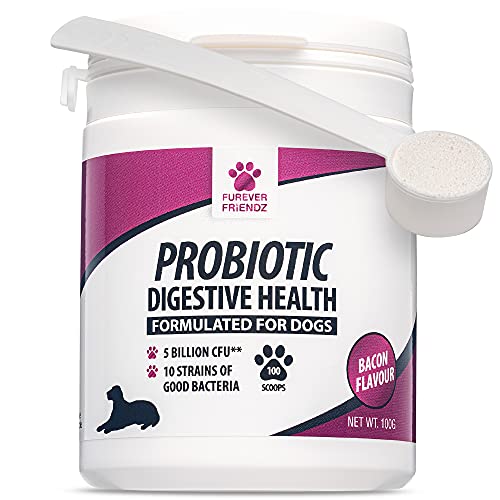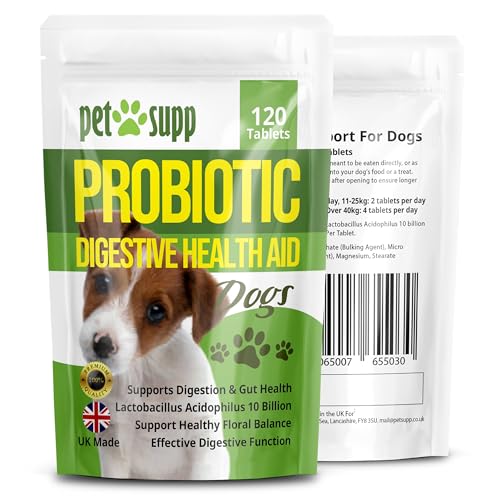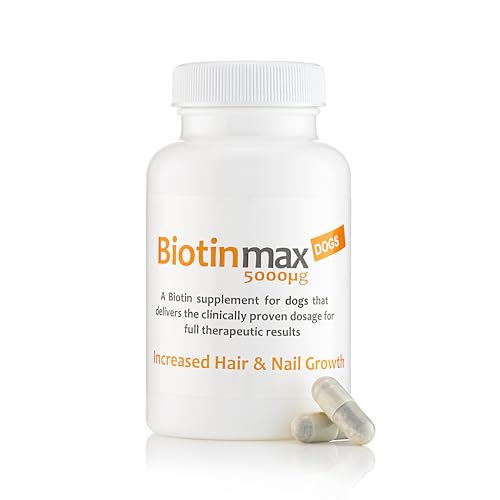Understanding Probiotics: What They Are and How They Benefit Our Dogs
What Are Probiotics?
Probiotics are live microorganisms that, when administered in adequate amounts, confer benefits to our dogs’ health. They primarily consist of beneficial bacteria which help maintain a balanced gut microbiome. This balance is crucial as it plays a role in digestion, immune function, and overall health. Imagine probiotics as healthy heroes fighting off the bad bacteria that can cause digestive issues or illness in our furry companions.
Benefits of Probiotics for Dogs
Incorporating probiotics into our dogs’ diets can lead to numerous benefits. For starters, they can improve digestive health by aiding in the breakdown of food and absorption of nutrients. If a dog has a sensitive stomach or experiences occasional digestive upset, probiotics can help restore equilibrium. Beyond digestion, probiotics also bolster the immune system, making dogs more resistant to infections. Think of giving your dog probiotics like providing them with a shield that strengthens their body from the inside out.
Choosing the Right Probiotic for Your Dog: Key Factors to Consider
Dog Size and Breed Considerations
When selecting a probiotic, we should take into account our dog’s size and breed. Smaller breeds may require different formulations compared to larger ones. Ensure the dosage matches your dog’s weight to achieve optimal results without compromising their health. A pug and a Great Dane certainly do not need the same amount of probiotic to benefit.
Formulation and Ingredients
Next, we need to look closely at the formulation. Some probiotics come in powder, capsule, or chewable form. Choose one that aligns with your dog’s preferences and dietary habits. Moreover, check the ingredient list for specific strains of bacteria. Look for strains like Lactobacillus or Bifidobacterium, which are generally recognised for their effective health benefits. The fewer the added fillers or artificial ingredients, the better.
Quality and Storage
Probiotic quality is paramount. Look for products from reputable brands that adhere to high manufacturing standards. Storage is another key factor; some probiotics need refrigeration to maintain effectiveness, while others are shelf-stable. Understanding how to store probiotics properly maximises their benefits, so always check the label to ensure you are saving your investment.
How to Introduce Probiotics to Your Dog: Tips for a Smooth Transition
Start Slow and Steady
When introducing probiotics to our dogs, starting with a small dose can prevent any sudden digestive upset. Gradually increasing the dosage over several days allows their system to adjust comfortably. We want to celebrate the positive changes without overwhelming their gut right away.
Mixing With Food
Consider mixing the probiotic with your dog’s regular food, as this method often makes it easier for them to accept it. If you’re using powder, sprinkle it on dry kibble or mix it into wet food. Dogs are generally attracted to familiar scents and tastes, which can help them embrace the new addition.
Monitoring for Changes
Lastly, while your dog is adjusting to the probiotics, be observant. Keep an eye on their digestive health and overall behaviour. If they seem more energetic and their bowel movements normalise, it’s a good sign that the probiotics are working. Regularly checking in helps you notice any subtle changes that might occur.
Top Probiotics for Dogs: Our Recommendations Based on Real User Experiences
High-Quality Choices
Based on user feedback and expert insights, we recommend several probiotics that stand out. A popular choice is Proviable, which offers a balanced range of beneficial bacteria tailored for dogs of various sizes. Another excellent option is VetriScience’s Probiotic, known for its palatable chews that dogs love. For specific digestive issues, we suggest Perfect Form, as it combines probiotics with natural digestive aids, providing a comprehensive solution for occasional tummy troubles.
Frequently Asked Questions about Probiotics for Dogs: Clear Answers to Common Queries
Can Probiotics Help with Diarrhea?
Many dog owners ask whether probiotics can alleviate diarrhoea, and the answer is often yes. Probiotics help restore gut flora disrupted by dietary changes or stress, which is commonly the cause of diarrhoea in dogs. However, it’s essential to consult a veterinarian before using them as a treatment for persistent cases.
How Often Should I Give My Dog Probiotics?
The frequency of administering probiotics can vary based on the product and your dog’s specific needs. Generally, once a day is sufficient for maintaining gut health, but specific recommendations may vary based on the formulation or if your dog is recovering from an illness.
Are There Any Side Effects?
Probiotics are generally safe for dogs, but some may experience mild gastrointestinal upset when first introduced. This reaction is usually temporary. Always consult your vet if you notice any concerning side effects or if your dog has pre-existing health issues before introducing probiotics.





















